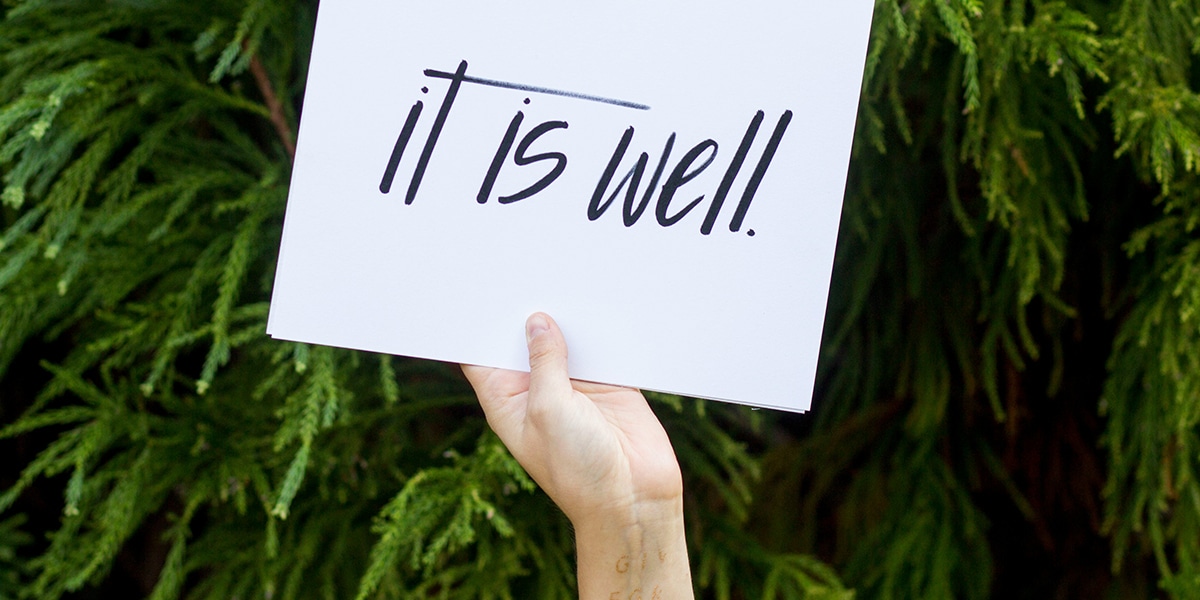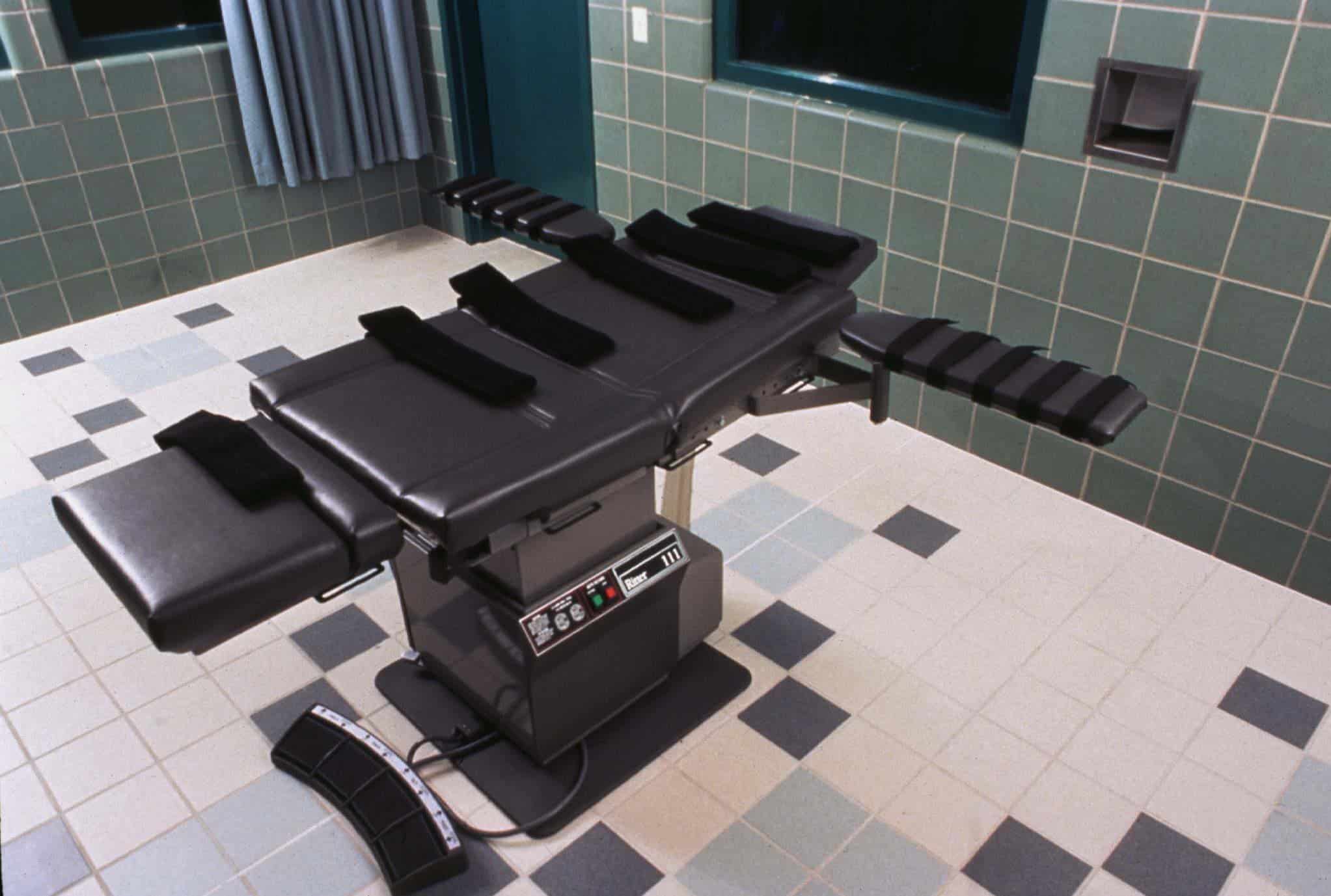Nelson Mandela once said, “There can be no keener revelation of a society’s soul than the way in which it treats its children. ” It’s common knowledge that Catholics are known for our vocal opposition to abortion. Our comprehensive pro-life ethic teaches that unborn babies have the same dignity and human rights the rest of us enjoy and that those rights should be conscientiously protected within a society.
But what happens when parents do choose life yet eventually find themselves unable to fulfill the commitment of parenthood, whether temporarily or permanently? Children go into the foster care system, and, all too often, Catholic voices and participation die out. This discrepancy may be seen as hypocrisy by those outside the faith who are watching carefully to see how the Church treats the children it claims to love.
While these social issues may be complex and devoid of simple solutions, we can’t allow ourselves to be daunted into doing nothing. The suffering of innocent children demands our most earnest action. There are many helpful ways to respond to the crisis of children in foster care, yet most of us are likely to only practice those that allow for a safe distance from pain and messiness actions such as donating money, volunteering during the holidays, or casting a vote. And while those things may be important, the hurting children in our communities need more from us.
A Sad State of Affairs
There is generally no shortage of Christian couples willing to adopt a healthy newborn baby. But when it comes to older kids, those with special needs, or infants of minority races, our track record isn’t as good. Many of us cannot name even one Catholic family we know who has adopted out of such circumstances, much less considered doing it ourselves. It could be argued that this is the greatest pro-life need of our time. And we are missing it.
If Mandela is right and a society’s soul is revealed by the treatment of its children, then the soul of the United States of America is in sad shape. According to the North American Council on Adoptable Children (NACAC), there are over 400,000 youth in US foster care in a given year, about 140,000 of whom are eligible for adoption. These are children who have been victims of neglect and abuse, many for an extended length of time. Some have witnessed unspeakable tragedy. All have experienced some degree of trauma. The injustices these children have survived are exactly what the Bible depicts God raging against and weeping over, time and time again.
Conversely, there are roughly 50 million Catholic adults in the United States many times more than enough to adopt 140,000 children. As a Mother Church, what do we do in the face of numbers like those? How are we called to respond?
When it comes to the example of Jesus and the teaching of Scripture, God’s desire for the care and well-being of vulnerable children is clear. Psalm 68:6 refers to God as “Father of the fatherless. ” James 1:27 says that pure religion is “to care for orphans. ” Psalm 10:14 speaks to God, “You are the defender of orphans. ” The Bible abounds with examples of just how seriously God takes orphan care. But the question is, do we?
A Culture of Care
Pope Francis has suggested that what is needed from the Catholic Church is for us to create a culture of adoption. This doesn’t mean that everyone should adopt a child some people can better serve by actively supporting those who do but it does task each one of us with making it a serious discernment in our lives.
All too often within the Catholic community, the call to adoption is assumed to be only for married couples facing infertility. We need to expand our view. Adoption is not primarily about a couple getting a child, although that is inarguably a holy and beautiful result; adoption is primarily about a child getting a safe and loving family. Seen from that lens, it is incumbent upon all Catholics, married and single, to seriously discern whether we might be used by God in this way.
In the same way that a call to permanent adoption should be discerned, so, too, should be the call to foster care. Most children in the system are not eligible for adoption and will eventually be reunited with parents or other family members after fewer than two years in foster care, on average. Research indicates that if safety allows, it is most beneficial for children to remain in their families of origin rather than be adopted into new families. Therefore, family preservation is always the goal in foster care if it’s in the best interest of the child. Sometimes he or she just needs a safe place to heal and grow while the parents work through the necessary changes in their own lives.
But tragically, there are more children in foster care than there are foster parents to take them. This discrepancy results in the need for group care facilities modern versions of orphanages despite the fact that research proves children grow and heal far better in family homes. About 12 percent of the children in US foster care live in group homes.
Even worse, it’s not unheard-of for children to spend the first night away from their parents sleeping in a caseworker’s office because no available local foster family could be found in time. Already traumatized first by neglect or abuse at home, then by the necessary separation from their parents, these children spend their first night away from familiarity in sleeping bags on an office floor. It is not uncommon for children to then be placed with foster parents in a different county, further traumatizing them with more change because there were no homes available in their own community. The shortage of foster parents is a crisis that demands the response of Christians.
Taking a Leap of Faith
Catholic Charities Community Services works with prospective parents throughout the process of fostering or adopting through the Department of Child Services by certifying homes, matching children with families, and providing post-placement support. Kylee Cosgrove, of Catholic Charities Community Services in northern Arizona, acknowledges that adopting through foster care can seem intimidating at first, but taking the leap is worth it. “Foster and adoptive parents are helping our communities’ most vulnerable citizens, ” she says. “It’s a way to let these children know that kindness, support, and love are out there. ”
So, for all our sincere pro-life rhetoric, why don’t more Catholics foster and adopt? One common misconception is that adoption is too expensive to be a realistic option for most people. While this is often true of international or private newborn adoptions (for example, being matched with an expectant mother by a private agency), it is far from the case when adopting from foster care, which is not only free or low-cost but often comes with financial assistance over the course of the child’s life. According to the NACAC, about 90 percent of US children adopted from foster care are eligible for this subsidy. Benefits vary by state, but generally include Medicaid coverage and monthly payments to provide for the child’s basic needs. Some states even offer free tuition to any public university.
But perhaps fear, more than finances, is actually what holds us back. When considering the temporary nature of foster care, many of us feel immobilized by our fear of saying goodbye to children we have come to love. Though the truth of that emotional toil can’t be denied, it’s important to instead prioritize the pain of the children, who have suffered much more. If we say things like, “I could never be a foster parent because I couldn’t handle the heartbreak of saying goodbye to a child, ” we are essentially saying the child’s pain is second to our own. This is not the way of Christ, who modeled for us what it is to lay down one’s life for another.
As Christian adults, we have access to the comfort of the Holy Spirit and our faith communities, as well as the peace that comes from knowing we have done the will of God, even at great personal cost. We adults have the ability to withstand the pain of saying goodbye; even if it’s hard, we can handle it. The child shouldn’t have to. They never asked to be in this position, and their pain takes precedence.
If we can follow the footsteps of Jesus and alleviate the suffering of the afflicted, if we can fill their lives with love and safety even if only for a time, isn’t that worth our grief when they’re gone? If having too compassionate a heart is our reason for not fostering, who exactly do we prefer to take up the task people who are not compassionate? That’s not what any Christian would want for an already abused or neglected child. We cannot wait around for someone else to rise to the occasion. We are being called.
âBuilt for Community’
Dan and Annie Tillberg are one couple who have answered the call and, after six years of fostering, can confirm the blessing outweighs the hardship. There is no question about it, Annie says: “Fostering will be more than you can handle. But where your strength fails, there you’ll find a life of radical love. ”
The Tillbergs have had five long-term placements over the years. Two children were eventually reunited with their birth families, and three were adopted by the Tillbergs, who have three biological children as well. Reflecting on her family’s journey of fostering and adopting, Annie explains that the experience has taught her much about the Christian life. “Fostering has taught me that if we are not deeply relying on God and our community, we are not yet fully living the radical love into which God is calling us, ” she says. “We are built for community, to be intertwined, break with the broken places of this world, and let God’s grace rebuild our hearts. ”
Those who embark on the journey of orphan care whether that be foster care, adoption, or both must begin with a mindset that is as realistic and flexible as possible. It is common for foster and adoptive parents to have to unlearn the strategies they used with their biological children or with which they themselves were parented. The brains of children who have experienced neglect, abuse, or other forms of trauma do not often respond to traditional parenting techniques in the same way that a typical child’s developing brain does. It takes humility of heart for a parent to be willing to be educated and to utilize approaches that better align with trauma research.
Establishing a mutual attachment with a foster child can be a long process, and healing a child from early trauma requires hard work from everyone. Since every person and every circumstance is different, the spectrum of experience is wide and without a textbook time line to consult. Parents Derek and Sarah Thomas say that, while their two adopted daughters felt like “miracle babies ” after a life-threatening fertility crisis, it still took over two years after their placement for the dust to settle fully a much longer time line than the easier foster placements they had welcomed in the past. Due to the girls’ sleep and behavioral difficulties stemming from their early trauma, Sarah describes the adjustment period as “the most exhausted, busy, afraid, and frustrated I’d ever been. ”
Yet the emotional investment was clearly worth it because both parents’ delight in their children is obvious. “My little girls make our family stronger and better, ” Sarah explains. “They are lively and interesting and make me laugh every day. They know they are loved by their family and Jesus. Foster care and adoption are not to be feared. Our experiences weren’t perfect but were good overall, and God was in them with us all the way. ”
Mandi Richards’ Fostering Testimony
When we initially became certified as foster parents, we had two children. Now, as we prepare to recertify for what will be our fourth year as a foster family, we have four biological children, ages 6 weeks, 2, 4, and 8. As our family grows and our children get older, fostering has become our family mission and an integral way that we experience our life and faith together. While it does present challenges for our family, it has also presented us with opportunities for great joy and for teaching and learning about the true meaning of love.
In many ways, fostering has leveled the playing field in our family, showing us that our children are much more versed in unconditional love, acceptance, and even sacrifice than their parents. It has also shown our children that, despite their young ages, they are able to serve God and others in very real ways. We are not foster parents who have children at home but rather a foster family, and I believe that is a real advantage to the children who come into our home. They are welcomed not only by a foster mom and foster dad, but also by foster siblings, and usually the bond between children develops much faster than between child and adult.
Often our foster children are wary of new adults in their lives but quickly warm up to other kids. Our young children, for their part, are amazing at welcoming newcomers they love their foster siblings immediately and without reserve. Unlike adults, who are quick to put limits on their love, children simply love those who are in front of them. Despite some real challenges to themselves sharing toys and rooms, less attention from parents, even physical aggression they love their foster siblings deeply and mourn when they leave. Watching these foster sibling relationships develop is one of the most beautiful gifts of fostering.
We have had four foster children, and all of them have left our home to go back to their parents. There is great pain that comes from watching them go. Years later, our kids still talk longingly about their foster siblings. Through this process, they have gained something invaluable: the understanding that God made us to love and care for one another, and that it is good to love all those he brings into our lives for however long they are with us. We have also learned together as a family that to truly love someone is to will their good over our own, which in this case means reunion with their families.
We’ve also come to realize the power of prayer as we continue to hold our loved ones as part of our family by praying for them long after they have left our home. Our hope is that, through our love for their foster siblings, our children also come to understand our unconditional love for them and in turn, God’s unconditional love for all of us.
Beyond Words
Indeed, most Christians can attest that, in our lives, God is often revealed through the cycle of life, death, and resurrection. Jesus’ promise that the Holy Spirit is with us provides the strength to walk into the unknown, where a child stands on the other side, waiting to be loved.
To hold a comprehensive pro-life ethic is to care not only for preborn or deathbed life, but also for a dignified quality of life at every stage in between. This requires us to pay attention to the suffering in our society, to live wide awake to the pain of the world that we are called as Christians to alleviate.
Donating money and casting votes are good, but they are not enough. We must honestly ask ourselves whether we are willing to boldly affirm the dignity of the human person if it requires personal sacrifice from us. Are we pro-life only with our words? Or are we following Jesus in the repairing of society, willing to embody an incarnational faith to see it made whole? Hundreds of thousands of vulnerable children are awaiting our answer.
Shannon Evans is a mother of five including one child through adoption and author who has written numerous articles for St. Anthony Messenger and other Catholic publications. To learn more about her work, visit ShannonKEvans.com.








